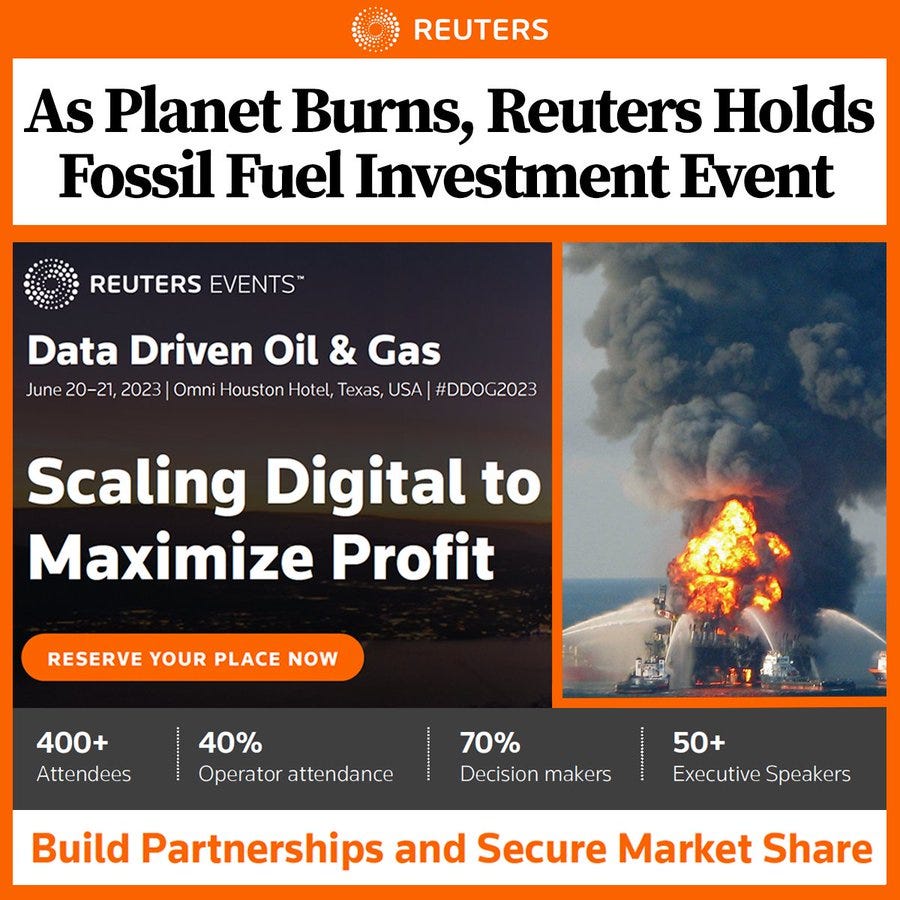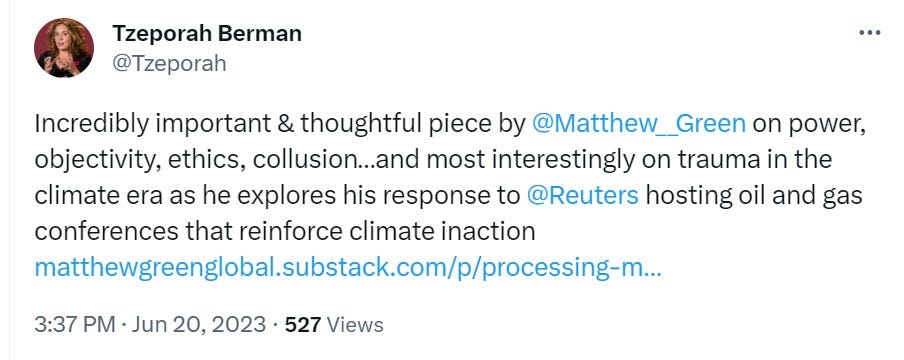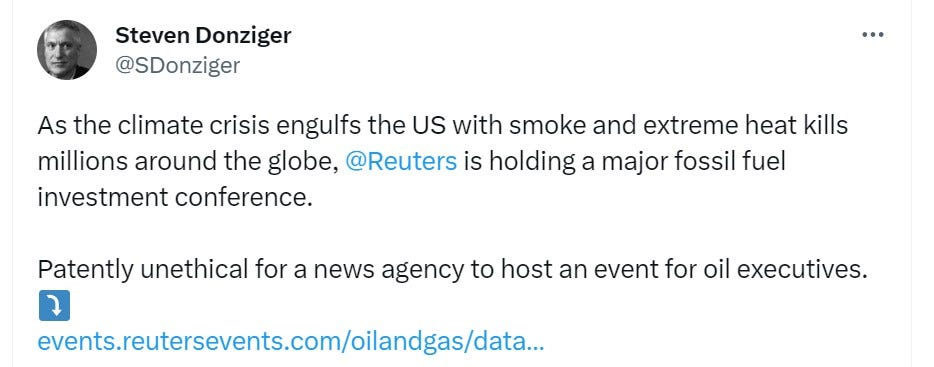Moving into Integrity
Shedding the skin of conformity felt better than I had anticipated.

“The world and its possibilities for becoming are remade with each moment.” — Karen Barad, in Meeting The Universe Halfway: Quantum Physics and the Entanglement of Matter and Meaning.1
Resonant World #33
Sometimes I imagine an alternate reality where I’d climbed the ladder in one of the big media houses I’ve worked in, and found a sinecure of the kind occupied by many of my friends.
Certainly, that path has significant appeal. There’s the money, obviously — and what that would enable me to materially provide for my daughter. But more than that, those jobs come with a psychological comfort blanket — for all the pressures they may entail. Every day, you can look around at talented, inspiring people working in the same structure, many of whom are doing important, courageous work. That cocoon made it easier for me to suppress any twinge of unease I’ve felt over the shadow aspects inevitably also present within any large institution, on the grounds that so many smart, likeable people couldn’t all be wrong. But as the climate crisis intensifies, I suspect many more people will find the cognitive dissonance required to unquestioningly participate in business as usual ever harder to bear.
I’d certainly never intended to end up standing on the outside, pointing at my former employer Reuters’ role in enabling the fossil fuel industry, as I did in Resonant World #32. (To summarise: the company is organising oil and gas industry trade shows; greenwashing oil majors such as Chevron and Shell via sponsorship deals; and producing credulous news coverage of fossil fuel executives). If the cards had fallen slightly differently, I’d probably still be working there, doing my best to make a positive contribution, and continuing to turn a blind eye to the contradictions I saw.
But I’ve learned since publishing that post that — for me to feel more whole — I had to shed some of my impulse to conform.
Standing Apart
Everybody’s circumstances are unique. I recognise how fortunate I’ve been to find a new role that allows me to speak openly, while still practicing as a climate journalist — a luxury that is denied to the vast majority of my colleagues working in newsrooms with strict social media policies that prevent them expressing what they think and feel. (It’s a great irony of the media that so many of those society deputises as truth tellers are kept so captive). With the media industry facing so many pressures, and many journalists being laid off, few people have an easy option for walking away.
And I know how deep the impulse to conform can run. I sweated over Resonant World #32, anticipating that — regardless of the rights and wrongs of my argument — I’d be seen as a traitor for subjecting my former employer to public scrutiny.
Instead, publishing the post brought me a sense of lightness; a quality of relief.
And that was nothing to do with the outcome.
Ripples
To be honest, any impact was hard to measure.
There were ripples, no doubt: A handful of Reuters journalists wrote to me privately to express agreement with what I’d said. I was very grateful for some appreciative retweets, and was delighted that Bill McKibben shared the post in his The Crucial Years climate newsletter. Other leading voices in the climate world read the post.


(Several days prior to the post being published, Steven Donziger, an environmental lawyer best known for his litigation against Chevron, had tweeted in protest at Reuters’ decision to host the Data Driven Oil & Gas USA 2023 event in Texas. Donziger has 204.5k followers).
Waves of Resonance
More tangible than any measurable impact, however, was the feeling tone I experienced.
Writing the post, I felt a sense of resonance with a deeper part of myself. And when I felt other people resonating with what I had written, even if it was just a few individuals, that feeling of inner resonance was amplified. If I was to draw a physical representation, it would be one of those ethereally intricate patterns that emerge in a sprinkling of sand on metal when a bowstring is drawn across the edge.
This wasn’t a top down pat on the head from an editor of the kind I’d chased in my younger days. This was feeling a sense of alignment and reciprocity with something bigger. And that something feels more trustable than any institution. Give me resonance over approval any day.
Shared Dilemma
I’m writing this in part to help integrate what was a significant initiatory process for me. But I’m also sharing this because I suspect many others working in large institutions are wrestling with a similar dilemma.
Of course, the discomfort I risked by standing apart from my former tribe at Reuters was miniscule compared to the very tangible sacrifices made by people fighting the climate crisis all over the world — from Indigenous land defenders laying down their lives, to climate activists risking arrest and jail.
Nevertheless, I suspect that millions of people who don’t face such immediate stakes are experiencing a version of the question I faced: How to be in relationship with an institution that is not actively transforming itself at a pace and scale the moment demands — or even grappling seriously with the implications of the predicament we’re in? As the sheer magnitude and urgency of the climate crisis becomes more apparent by the day, the psychic cost of serving institutions that are part of the problem grows proportionately heavier for each individual concerned. This is a significant form of collective trauma.
There are no easy answers. Everyone must find the path that is right for them.
This is only realistically feasible in community. Resonant World aims to support the emergence of these communities, and I hope these words will weave new connections that can support us to support each other to find our way through.
Resonant World is not brought to you by Shell. Support from readers is a huge boost — and that includes forwarding, sharing, or commenting in response to my posts. Any variety of coffee most gratefully accepted! Thank you for reading.
As quoted in You Matter More Than You Think: Quantum Social Change for a Thriving World, by Karen O’Brien.





Oh wow, thanks for this. When I elected to not work with fossil fuel companies, I didn't realize how much that would shrink my network but I'm so glad to find others who are making similar choices.
Thank you for this very incisive piece!
When the equivalent of the Nuremberg Tribunals are held for Crimes Against the Biosphere, "I was only following orders," will not cut it. People must choose whether they want to be a part of the Resistance, or be labelled Collaborators.